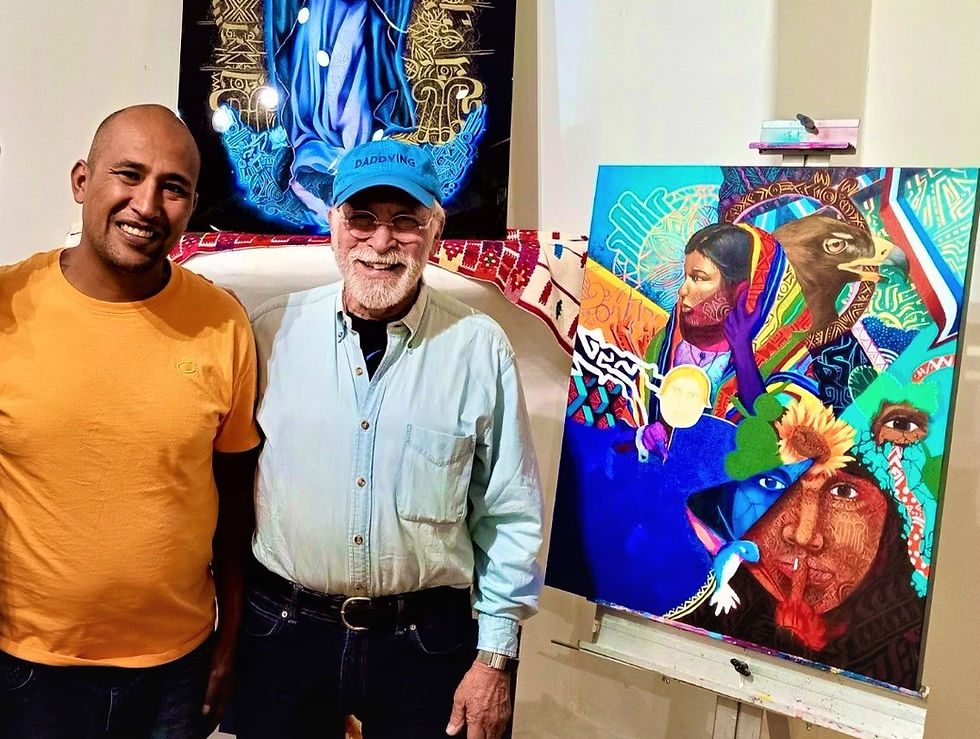Why I Was Relieved When My Father Died
- Allan Shedlin

- Nov 30, 2022
- 3 min read
By Allan Shedlin
Grampsy and Founder, DADvocacy Consulting Group

About 20 years ago, when I was looking for a quiet spot to write a eulogy for my father’s memorial service the next day, my 31-year-old middle daughter stopped me to say she thought it was interesting that I was responding to my dad’s death very differently than I had responded to my mother’s death nine years earlier.
With so many other things on my mind, it was not something I was thinking about. But it seemed worth contemplating. I told my daughter I would think about it so I could explain it to myself and then to her. My explanation began with a question to which I already knew the answer: “Do you have a different relationship with your mother than you do with your father?”

The universal answer is obvious.
After I explained that I had an assigned legal role to play regarding my mother’s end-of-life medical directives and her funeral wishes, I told my daughter that this was not the case with my father. Then I shocked her – and myself – by saying that I was relieved that he had died.
“But I thought you loved your father,” she exclaimed. I assured her I did. And then I explained:
When one’s parent is in their ninth decade, it is reasonable and advisable to come to grips with the fact that their death will not be very far off. And as one prepares, one wonders what their final years will be like – will they be infirm? Will they have dementia? etc. At 88, as he was scheduled to play golf after his daily swim, the day before he became comatose, it was a relief that my father was in robust health.
My father and I spent much of our lives trying to improve each other – to make us more into the people we might have preferred. What a relief that was no longer an option.
My father “played favorites” with my three daughters. That was very hard for me as he made it quite obvious, and I felt the need to “ride interference.” It was a relief for me to be free of that daddying responsibility.
It is an understatement to note that our familial relationships are complex. And it is important to be as honest and realistic about them as possible. Perhaps, among the most important things any of us can do regarding our parenting – as daughters and sons, as well as dads and moms – is to be intentional about our relationships. And when the end comes, as it must, our goal should be to leave as little unsaid and unrealized with the ones we love as possible.


Allan Shedlin has devoted his life’s work to improving the odds for children and families. He has three daughters, and five grandchildren, as well as numerous "bonus" sons/daughters and grandchildren. Trained as an educator, Allan has alternated between classroom service, school leadership, parenting coaching, policy development, and advising at the local, state, and national levels. After eight years as an elementary school principal, Allan founded and headed the National Elementary School Center for 10 years. In the 1980s, he began writing about education and parenting for major news outlets and education trade publications, as well as appearing on radio and TV. In 2008, he was honored as a "Living Treasure" by Mothering Magazine and founded REEL Fathers in Santa Fe, NM, where he now serves as president emeritus. In 2017, he founded the DADvocacy Consulting Group. In 2018, he launched the DADDY Wishes Fund and Daddy Appleseed Fund. In 2019, he co-created and began co-facilitating the Armor Down/Daddy Up! and Mommy Up! programs. He has conducted daddying workshops in such diverse settings as Native American pueblos, veterans groups, nursery schools, penitentiaries, Head Start centers, corporate boardrooms, and various elementary schools, signifying the widespread interest in men in becoming the best possible dad. In 2022, Allan founded and co-directed the inaugural Daddying Film Festival to enable students, dads, and other indie filmmakers to use film as a vehicle to communicate the importance of fathers or father figures in each others' lives. Allan earned his elementary and high school diplomas from NYC’s Ethical Culture Schools, BA at Colgate University, MA at Columbia University’s Teachers College, and an ABD at Fordham University. But he considers his D-A-D and GRAND D-A-D the most important “degrees” of all.














Comments